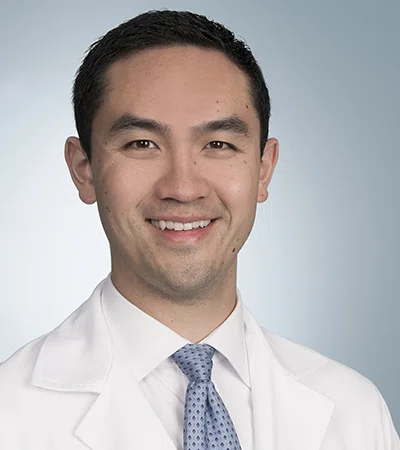

Lung transplant study shows robot use improves hiatal hernia surgery outcomes
Lung transplant study shows robot use improves hiatal hernia surgery outcomes
by Denise B. Hensley

Edward Chan, MD, FACS
Edward Chan, MD, FACS, recently conducted a study that shows robot-assisted hiatal hernia/reflux surgery may be as safe for lung transplant patients as it is for the general population. “At Houston Methodist, we have one of the busiest lung transplant programs in the country.
We also have a robust thoracic surgery service that takes care of many patients with gastroesophageal reflux disease (GERD),” says Dr. Chan, Associate Professor of Surgery and Cardiothoracic Surgery.
Dr. Chan said the study is important because lung transplant recipients are often perceived as too high risk to undergo elective reflux surgery. However, there is a strong connection between GERD and transplant rejection, which is the leading cause of death in lung transplant patients. The new study shows this population of patients may receive the most dramatic benefit from successful treatment. Among 386 patients who underwent reflux surgery, 43 patients had previously undergone a lung transplant.
The surgeries were all performed robotically an average of 2.5 years after the lung transplant, and all patients were enrolled in a fast-track/enhanced recovery protocol. The study showed no statistically significant difference between lung transplant and non-lung transplant patients in post-operative complications (9.3% vs. 5.2%), median hospital stay (1 day), 30-day readmission (7.0% vs. 5.0%), or 30-day mortality (0% vs. 0.6%). “When we do this surgery, about 90 percent of our patients are off reflux medication long term,” Dr. Chan says.
Ray Chihara, MD, PhD, who does lung transplant and robotic reflux surgeries, and Min Kim, MD, FACS, who performs robotic reflux surgery are also authors of the study. The study was a single-center retrospective analysis of the Society of Thoracic Surgery database for patients who underwent elective hiatal hernia/GERD procedures from 2018 to 2021.


